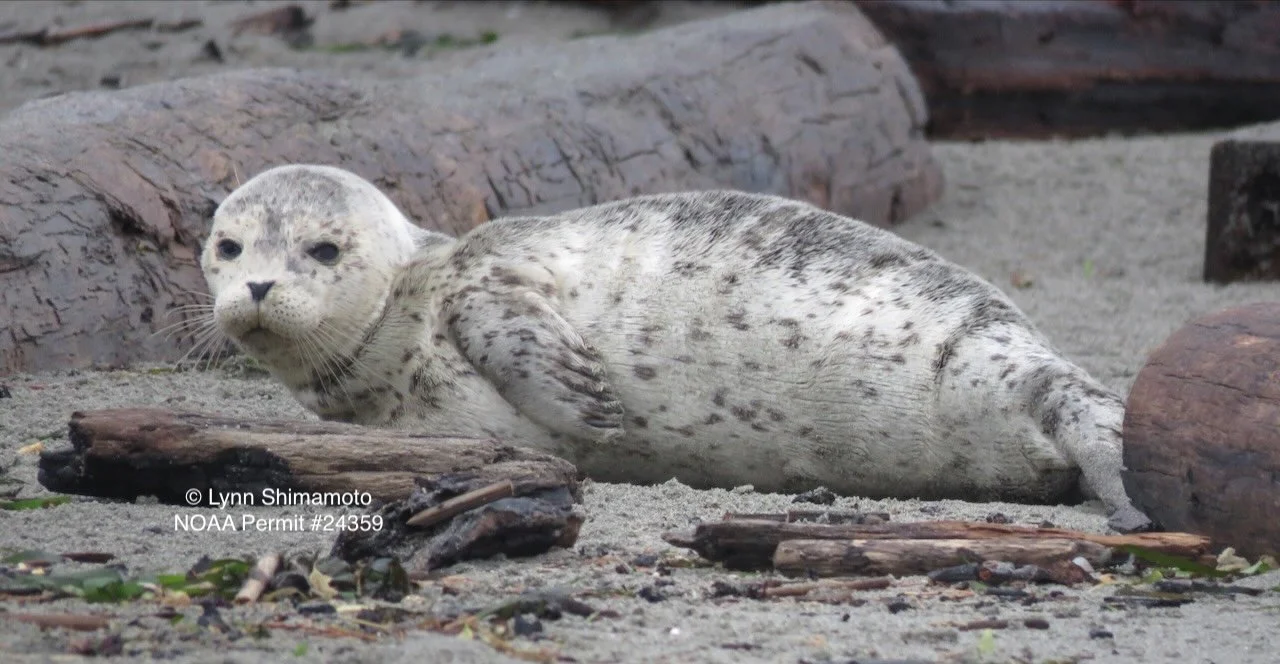Seal Sitters volunteers protect marine wildlife on West Seattle's shores
Photo credit: Robin Lindsey
About Seal Sitters
Seal Sitters is a group of trained volunteers dedicated to protecting harbor seals and other marine wildlife that share our West Seattle shores.
Since 2007, our volunteers have created safe spaces for these animals to rest and thrive on our local beaches.
Through education and engagement, we help our community discover the wonder and joy of our shared marine environment.
Seal Sitters is part of NOAA’s West Coast Marine Mammal Stranding Network, providing valuable data about marine mammal health in the Puget Sound.
Photo credit: Lynn Shimamoto

What to do if you see a seal on the beach:
👀 Keep your distance:
Stay at least 100 yards away (the length of a football field). If the animal looks at you, you're too close!
📞 Call our hotline: 206-905-SEAL (7325)
🐕 Keep dogs away:
Dogs are not allowed on Seattle beaches (city ordinance)
🗣️ Spread the word!
Let others know to keep their distance
See a seal, outside of West Seattle?
Find other numbers & resources here →
Photo credit: David Hutchinson
Did You Know?
Harbor seals are the most common marine mammals in Puget Sound
Seal pups rest on beaches to conserve energy
Human disturbance can cause mothers to abandon pups
Your actions matter:
Only 50% of seal pups survive their first year, which is why it’s important to keep your distance – the pup’s best chance of survival is if they can rest, or if very young, reunite with its mother
⚠️ Keep your distance!
Marine mammals including seals and sea lions are protected by federal laws.
It's illegal to touch, feed, move, or harass a marine mammal. Stay 100 yards away.
Ways to get involved:













